
Poetry Dispatch No. 248 | August 8, 2008
RONALD BAATZ: The Elephants and Everybody Else
Readers familiar with this website and other writings know of my deep and long admiration for the work of Ronald Baatz. Some of what I have written about him can be found on this site. ( “Select Category”…scroll down to Ronald Baatz.) You will also find a wonderful poet, Mark Weber, and a book they both share.
Baatz and I go back to Marvin Malone’s lively WORMWOOD REVIEW, which began in the 60’s and had almost a 40-year run. What one man alone could do with one little mag in America is still beyond believable. (Check the first ‘Baatz Bibliography’ which I’ve included at the end of this piece.) The quality and diversity of writers Malone gathered together in each issue—truly a PhD thesis waiting to be written, if it hasn’t happened already. Something too for future little mag and small press editors/publishers to study. In the end, of course, it all comes down to a one-man/woman operation and obsession—to print/to share/to distribute what one senses is out there in the culture, the literary firmament… And no one mined that field better than Marvin Malone.
It was my intention with this Poetry Dispatch to write a longer, informative piece on Ronald Baatz and his latest book, THE ELEPHANTS AND EVERYBODY ELSE, which Cross+Roads Press recently published. I wanted to give new and old readers of his something close to a profile, almost as personal, true-to-life, and informative as the one on Curt Johnson, which appears at the end of his book, SALUD, Selected Writings.
Baatz seemed open to my suggestion at first. I followed with preliminary notes outlining specific areas of questioning I wanted him to think about, areas of art and life which might benefit both readers and writers. But I didn’t hear from him as quickly as I usually do. And then I knew, instantly, it wasn’t going to happen.
Baatz has always been a pretty private writer, and I sensed he was uncomfortable with where I wanted to go with the questioning, although I fully understood and avoided anything too personal. It was mainly the writing I wanted to deal with. A little history and insight here and there. I wrote back, gave him a chance to beg off—and he took it. So…we’ll leave it at that. I respect his right to let the work speak for itself. Though I am disappointed…and disappointed for readers and writers as well.
But what we have here in “The Elephants…” is one magnificent book (in my humble estimation and experience as writer, editor, publisher) which could have been, should have been published by one of our larger commercial presses in America, or one of our more distinguished, highly financially backed independent or academic presses…BUT, given the nature of ‘how it is out there,’ given the ‘influential’ games some folks play—it didn’t/wouldn’t happen.
And that’s where the very small, highly under-financed, unpredictable, insecure, over-worked, often unacknowledged, here-today-gone-tomorrow, small press comes in, to play the role it has always played (underground and out of sight) in seeing that these other voices be heard.
When people ask: “What kind of work does Cross+Roads Press publish?” I am more than proud to suggest any book on the backlist, or to turn to the latest: THE ELEPHANTS AND EVERYBODY ELSE by Ronald Baatz.
Just holding a copy in one’s hand…and you know it’s something special, quite out of the ordinary. I don’t have to say: This is what I want. This is what I’m looking for. This is what matters. This is the kind of writer I want to help and the only reason I keep going though, as always, I’m never sure how much longer.
Nor do I care to confess: I printed only 250 copies of it because that’s all I could afford, and I may not recover—again! Even sadder, there’s the possibility that fewer than half that many people will ever find the book. You never really know, the odds are always against you. But, on the other hand, I also know (sense, feel, etc.) “instant classic” about this book. That years from now (perhaps next year, or the year after) people will be looking for a copy of “Elephants” and it will be gone, hard to find, selling for considerably more than the cover price of $13 plus postage.
That’s the only faith the small press writer/publisher keeps.
Here are five poems from the book–of almost fifty poems. I will let them speak for Ron Baatz, everything and everybody else—and leave it at that. —Norbert Blei
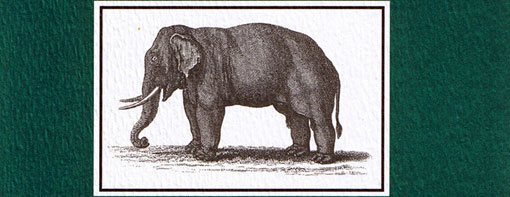
THE STORYTELLER
Since the search for a new pen had been repeatedly put off,
he continued writing with the old one, even though it felt
thoroughly used up to him. He was correct in sensing that
as far as telling a story was concerned it had long ago run dry.
Finally, out of a mounting frustration, he grabbed his cane
and went out to buy a new pen, an expensive pen for a change,
a genuine fountain pen, since he had never owned such and
he suspected a wealth of new stories might come from one.
The problem was, he couldn’t go into a store to try one out.
They didn’t have ink in them. He would not be able to sample
the way words flowed from one that might excite his imagination.
The pleasures of even a simple sentence would be denied him.
But after hemming and hawing in front of a store window,
gawking like a child wishing sticky candy, he went in and asked
if he could hold one of the fountain pens. He felt
its well-balanced weight, its lustrous blackness, but also
he was pained at the awareness of the dry and wordless point.
He complained it was no better than holding a knife, an umbrella
or a baseball bat, which were all exquisitely useful when properly
applied to the world, but none was capable of leaving behind
a single utterance once they had accomplished their assigned task.
When it finally came to making a decision,
the bespectacled writer bought one of the pens.
The temptation to intimately know one was
just too much for him to resist. And so with
pen and bottle of ink he walked with anticipation
through the dark streets, in the direction of his house
where his wife stood impatiently at the front door,
worried sick over how late the hour had grown.
To make matters worse, instead of going directly home
he detoured to the outskirts of town, knowing
the earth was scheduled to collide with a meteor shower
the likes of which hadn’t been seen in ages. Beyond
the town’s glow, fields were abundant with wattle bushes
and tall dry weeds, and cicadas were in riot amongst them.
But as long as he stood there, not a single shooting star
was seen to scratch the sky. The ironclad pattern of stars
did absolutely nothing to persuade the writer to be optimistic
that his new pen would offer up even a single unique story.
Wagging his head he spit at the earth the cold spit of despair.
As a last resort, he took the empty fountain pen from the bag
and looking straight up at the brilliant stillness of the heavens
he connected a handful of the dots, creating the figure of a goat,
the very thinnest moon imaginable lodged tightly in its stomach.

THE INSOMNIAC
There was this elephant, a bull, who suffered from insomnia.
After nights of not sleeping, this elephant would find himself
at the edge of the town and there he would stand, transfixed
by aromas that would activate in him titanic fits of hunger.
Unable to satisfy this hunger, eventually the elephant would
meander over to the cemetery, where, in all likelihood, the
old gravedigger could be found working in the cool of dark
by the wavering light of a single torch. Well aware
of the nearness of his own death, the old man could be heard
mumbling grim sentences into the opening of the earth.
He would swear at himself too, at how foolhardy he had
often been in making his way through this tantalizing world.
He’d bemoan the bitter loss of loved ones; yet at the same time
he wished only to be left alone so that he might embrace
the unceremonious bliss of dying in peace. His death should be
as inconsequential as that of a moth dying in a cold mist.
He was old, and because he was old he was tired of being
invisible to the young, of aching bones, of trimming his
wiry beard, of praying to a deaf god, of getting drunk on
cheap wine, of being incapable of loving yet another woman,
of taking his teeth out, of putting them back in, of fearing
the panther in the garden, of hoping he’d mistake dying
for simply falling asleep. As he labored the gravedigger
would keep an eye on the elephant, trying to understand
what was going on in such an gigantic, gray, slow-moving head.
Did the elephant think that the man was digging his own grave
because he intended to commit suicide, only to back away
from this naked act of despair at the very last moment?
Or maybe the elephant thought the man was stealing soil
to take home to enrich his garden, to encourage new growth
instead of leaving the soil where its only role was to embosom
the dead. Or might the elephant suspect that the man was
digging up money he had hidden when being chased by the law
and now he needed this money in order to run off to America
to finally fulfill his dream of opening a French restaurant?
Having sized up the elephant, the gravedigger was relieved
that he did not have to dig graves for the likes of such a creature.
Although, with careful consideration, he had estimated that
he could get the job done in one night of nonstop digging.
As for the elephant, he could not begin to conceive of
being forced to sleep eternally in the dark of the earth.
Even though he was aware that his flesh would end up
in places like the belly of the vulture, still, he found
comfort in the fact that his bones would be left behind
as monument to the years of struggle he had waged.
Whenever the elephant grew bored with the digging,
he would go off elsewhere in search of distractions.
He would stop at the motel at the edge of town and
drink water from its swimming pool. Many a night
he could be seen spraying water rowdily up at the sky
as though trying to put out the moon and all the stars.

THE DOG KILLER
One elephant, an unusually large domestic bull, suddenly
got it into his head that he didn’t like dogs, and whenever
he came in contact with a dog he’d grab it and curl it up
in his trunk and then barbarically slam it to the ground,
more often than not killing the helpless animal. No one,
not even the owner, could say exactly why the elephant
was behaving as such, since none of the dogs had been
taunting the elephant. It got to the point where the owner,
an old man who made a living with this elephant by
taking tourists for rides, had to chain the elephant to a tree.
The elephant’s only consolation was scratching up
against this tree, predominantly with his forehead.
And when the old man took the elephant down to the river
every day for a washing and some recreation, he
simply made sure that there were no dogs to be encountered.
Naturally he made sure no children were around who
also might fall victim to the elephant’s unpredictable behavior.
While washing the elephant the old man would talk to him,
questioning his sudden dislike for dogs. As always
with the elephant and the old man, the elephant listened
as muscly drops of water fell from his huge eyelashes and
his trunk entered the water like a snake coming down from heaven.
The old man’s voice was the most familiar sound to the elephant;
and without that consoling, loving sound heard daily,
there’s no telling what the elephant might’ve done
in the way of destruction. The old man had been given
the elephant when he was a child by his father, and now
neither the man nor the elephant had long to go on this earth.
It was true that the old man had been bitten twice by stray dogs
and the elephant had been witness to these attacks, and
because of this there was some suspicion that the elephant
was now inflicting punishment on any dog they came across.
At a town hall meeting the people unanimously voted that
the elephant not be allowed to travel in the streets anymore.
What caused the old man many a sleepless night was
the question of how he could make enough in earnings
to feed both himself and the elephant if he could not
continue to cater successfully to the hordes of tourists.
It was a problem he dwelt on day and night. Eventually
he realized that setting the elephant free in the wild
was what he had to do; and as for himself, he would go
and live with his brother’s family in a nearby town.
This he did, to both his own sorrow and the elephant’s.
They did not die on the same day. Unquestionably
it would have made a better story if they had. The elephant died
a year after they had parted, a vicious stab wound
delivered by a young bull having been the cause.
Beyond that, the old man lived a few years of joy
and contentment in the company of loved ones.
Unlike the elephant he had a peaceful death, which
came in his sleep, the sweetness of his daily ration
of vanilla ice cream still lingering in his belly.

THE KITE FLYER
Late afternoon was when he preferred being alone
at the beach to launch a kite. On most days luck
would be with him and he’d locate a fine current of wind
suitable for his mission. Blue cloudless days were his favorite.
Actually, he didn’t like clouds on blue days or any other days.
Clouds proved nothing more than needless distractions.
Turning his hawklike nose and squinting eyes upwards,
he craved the possibilities of incalculable space.
With feet firmly planted in sand, he felt the tension on the string
linked him directly to the endless play of atmospheric forces.
This allowed him to forget, if only momentarily,
his everyday life. Once his kite was safely aloft,
he was able to forget clogged rain gutters, taxes,
his garden choking with weeds, high blood pressure,
stolen chickens, his rusting automobile, the grandchildren,
who, for some reason, didn’t seem to have a home of their own.
On mornings he brought one of his grandsons with him
initially the child would take interest, even joy, in watching
the kite slowly diminish in size as it rose higher and higher;
but before long the child would resort to his shovel and pail.
Thoughtfully, digging in sand, he would start asking questions,
bothersome ones about the sky. The man would end up swearing
to himself never to permit his peaceful kite-flying solitude to be
intruded upon again. The last thing he wanted to deal with
were words and difficult explanations. From being alive
for so many years, he understood words imposed limitations.
Not even from an innocent child could he tolerate words, and
he certainly had no intention of explaining why the sky was blue.
Eventually he would cut the string, permitting the wind
to take the kite wherever it pleased. He’d gaze up at the sky,
life’s frustrations evaporating like mist on green dreamy bananas.
Shielding his eyes from the sun, the grandson would also look up
and he would see his grandfather, a man lost in the desire
to be elsewhere. What else could he do but shovel sand
into his grandfather’s socks?

THE DRIFTER
She wished to show him the damaged cherry blossoms.
Being comfortable on the back porch with newspaper
and coffee, he put up a minor resistance. Not that he was
reading all that much, the last cool breeze of morning
having the desirable effect of helping him doze off.
Once she got him out to the orchard she handed him
some of the hail still remaining in shaded ground.
He rolled the balls around in the palm of his hand,
attempting to make them come to rest on the same line,
wondering what that line might be called. Even though
he knew she would probably know the answer, he did not ask,
aware that this was not where his attention was supposed to be.
He was supposed to be showing concern for how cruel
nature was capable of being to its own fine creations.
When she took him by the arm to return to the house,
he made sure to throw the balls of hail back in the shade.
If she were to ask him why he was showing concern
for the hail, he would not have been able to answer her.
Perhaps it was simply because he himself would have preferred
to remain in the shade, that if his life were to be leaving
his body he’d prefer to have it happen in the cool of the
back porch, newspaper on lap, none of the news being
of any importance anymore. If he were to mention this,
she no doubt would’ve accused him of dwelling
on his own death too much, when he should’ve been
at least mildly shocked at the damaged blossoms still clinging
to the hail-scarred branches. In a white cotton dress
she was without question a remarkably beautiful woman.
As much as this porch of hers was his place of retreat
from the undying annoyances of the world, he hated
being deposited there by her so that she could return
to whatever it was that she had been doing in the kitchen.
He wanted to chase after her and grab her by the arm
to tell her not to worry about the damage done
to the cherry blossoms. Of course he didn’t do this.
It had been her family’s farm before she had been born,
and now she was the only family the farm had left.
He heard her placing a large iron pot on the stove.
He thought about what it would be like to live with her.
The place was so calm and quiet. The time could be
used to think things over. He had no plans, no goals.
He was without ambition. At heart he was a drifter, but
his heart was growing weary of drifting. In the kitchen
he found her washing cabbage in a deep sink, in front of
a window that looked out onto a field that extended to where
a fence had collapsed in tall grass at the edge of the orchard.
He put his arms around her, and without turning she asked him
if he’d ever noticed how consoling the orchard was in
in the dying light of evening, more so than it ever was
in the light of dawn.

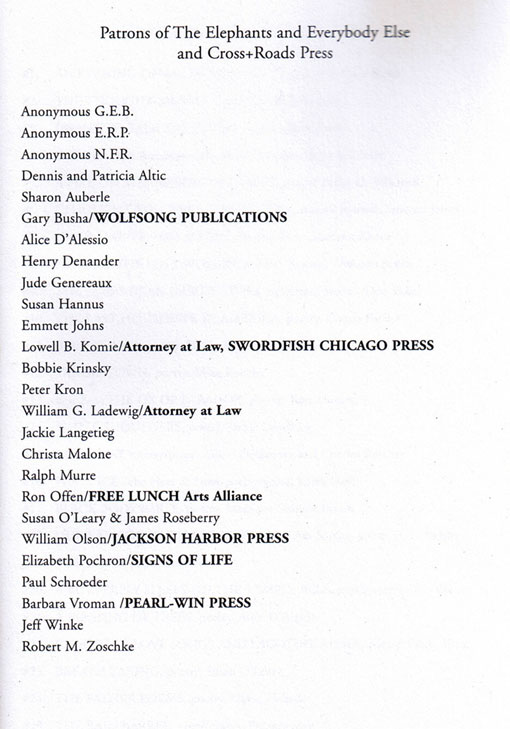


A Baatz Bibliography
- ALL THE DAYS ARE Tideline Press 1974
- AFTERNOON PLUMS RISING Tideline Press 1982
- STRANGE BREAKFAST Permanent Press 1987
- LUCKY SO BEAUTIFUL Wolfscat Press 1989
- RAVAGED Clark Street Review Press 2000
- MT TREMPER HAIKU Flypaper Press 2000
- AT HERRING COVE Lockout Press 2002
- WHITE TULIPS Tideline Press 2003
- IN A CLAY PIG’S EYE Seastone Editions 2005
- ON THE BACK PORCH Concrete Meat Press 2006
- FISH FORK Seastone Editions 2008
- BIRD EFFORT Kamini Press 2008
- OUT OF HIS CHILDHOOD Zerx Press shared chapbook with Mark Weber 2007
- CEMETERY COUNTRY Zerx Press shared chapbook with Mark Weber 2008
- NEXT EXIT: SEVEN Kendra Steiner Editions shared chapbook with Luis Cuauhtemoc Berriozabal 2008
- THE COMPANIONSHIP OF THE PLUM Kendra Steiner Editions shared chapbook with Bill Shute 2008
- THE WORMWOOD REVIEW three special sections issues: 104, 140, 144
“Second Hand”, WR #104 1986; “Out in the Late October Garden”, WR #140 1995; “Every Winter”, WR #144, 1997
- YELLOW SILK anthology of erotic arts and letters Harmony Books 1990
- THE BOOK OF EROS anthology of arts and letters from Yellow Silk
Harmony Books 1995
- SEVEN HUNDRED KISSES anthology of erotic writing from Yellow Silk
HarperSanFrancisco





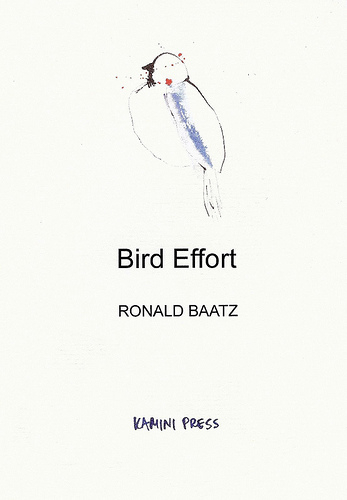
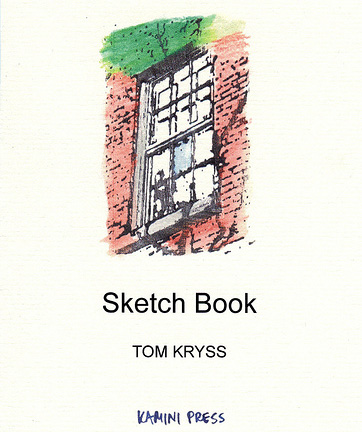
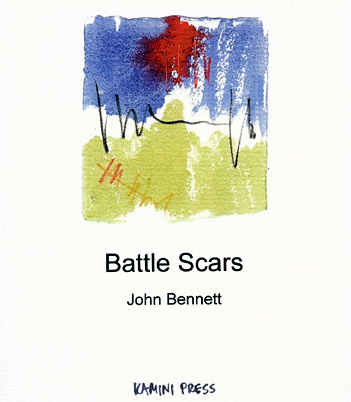













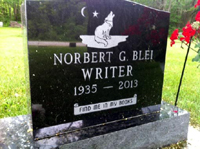



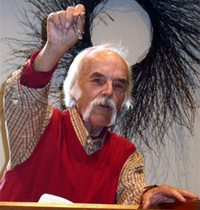




















































Recent Comments